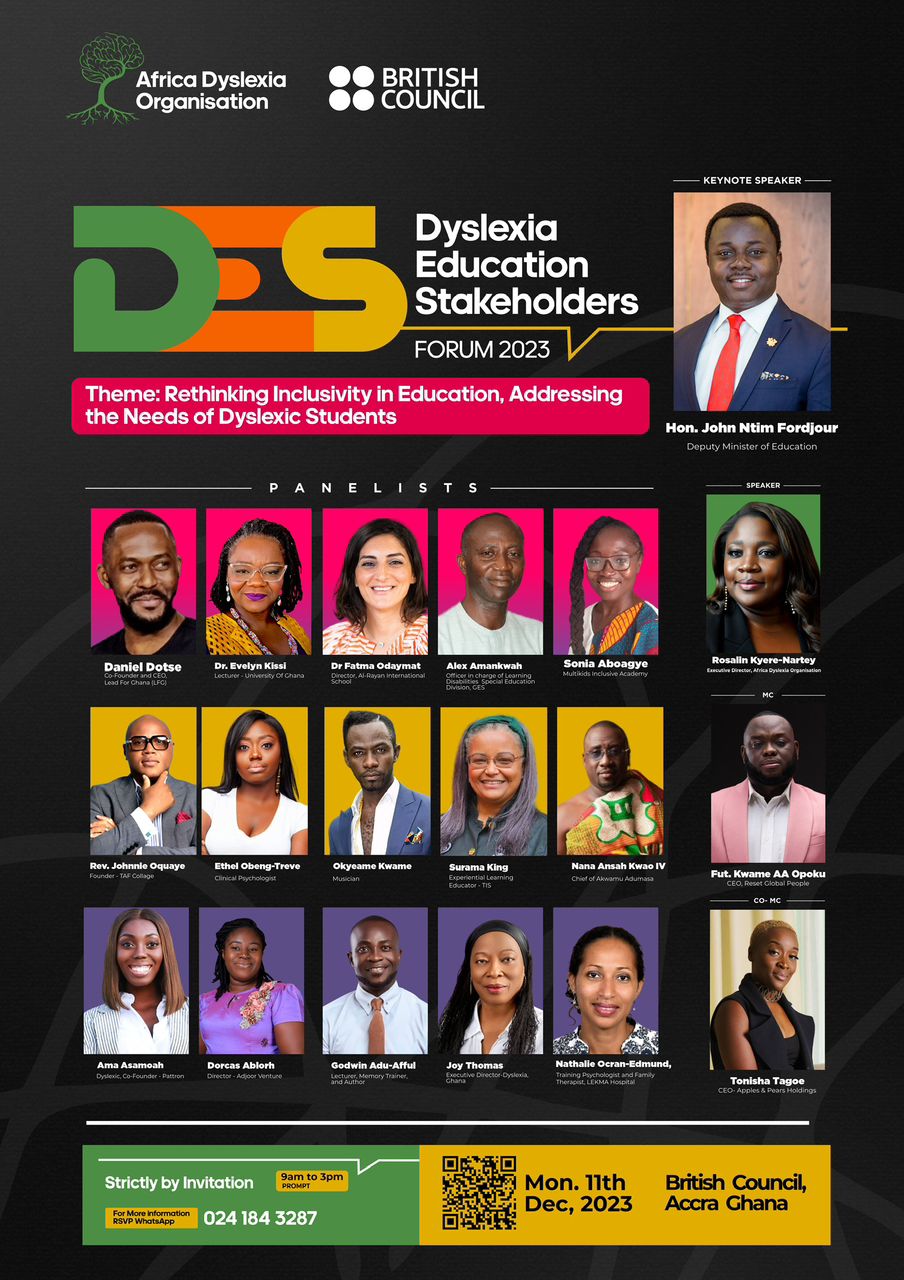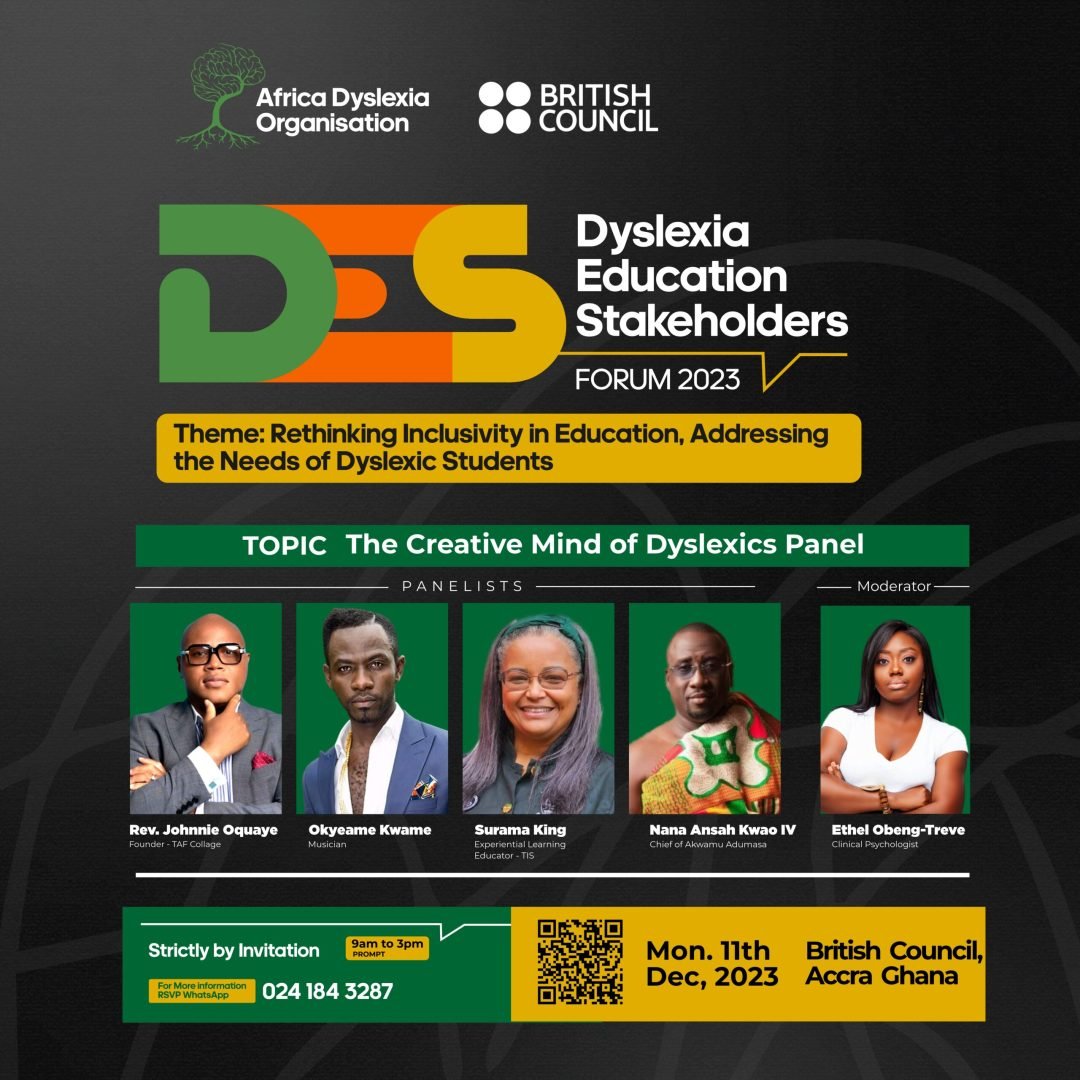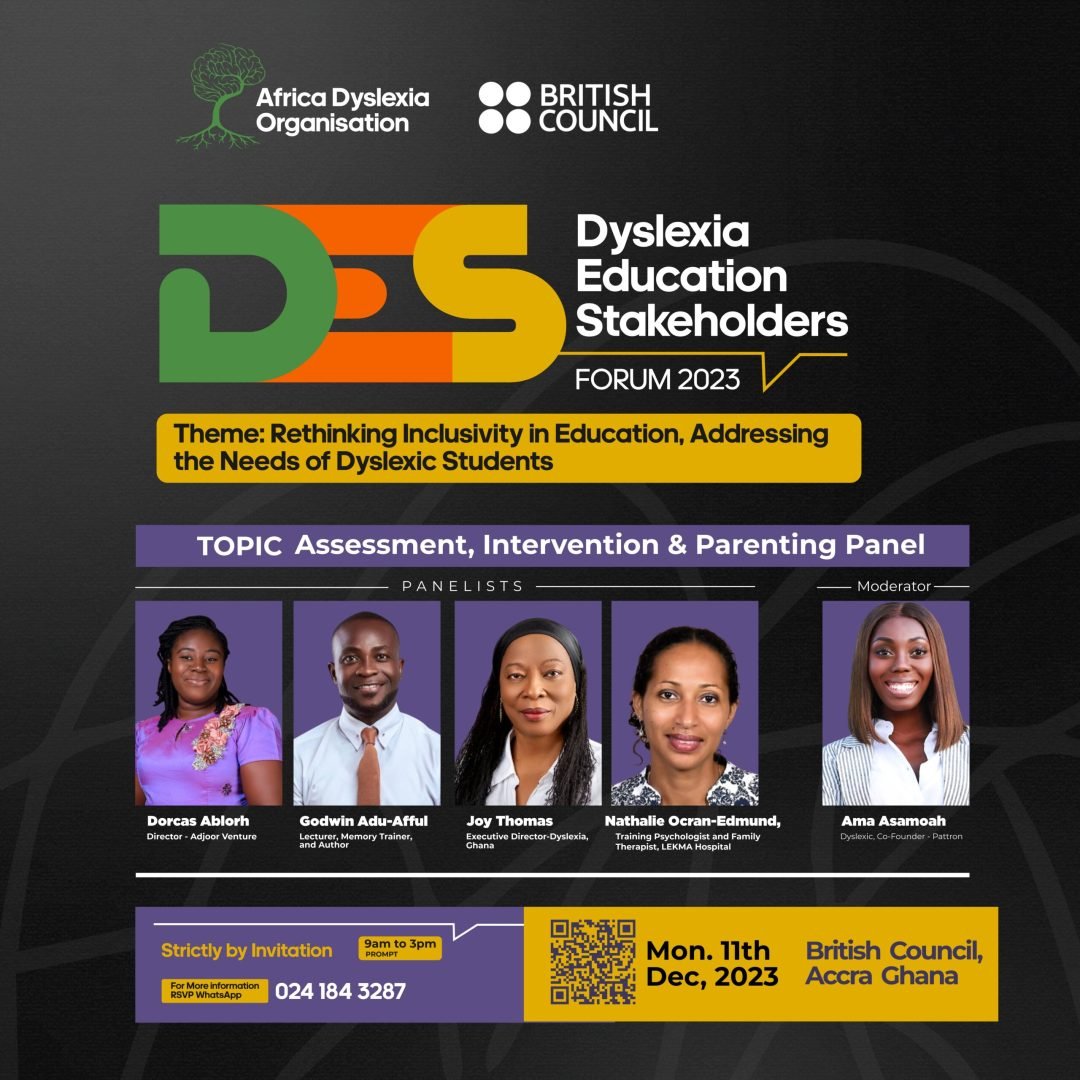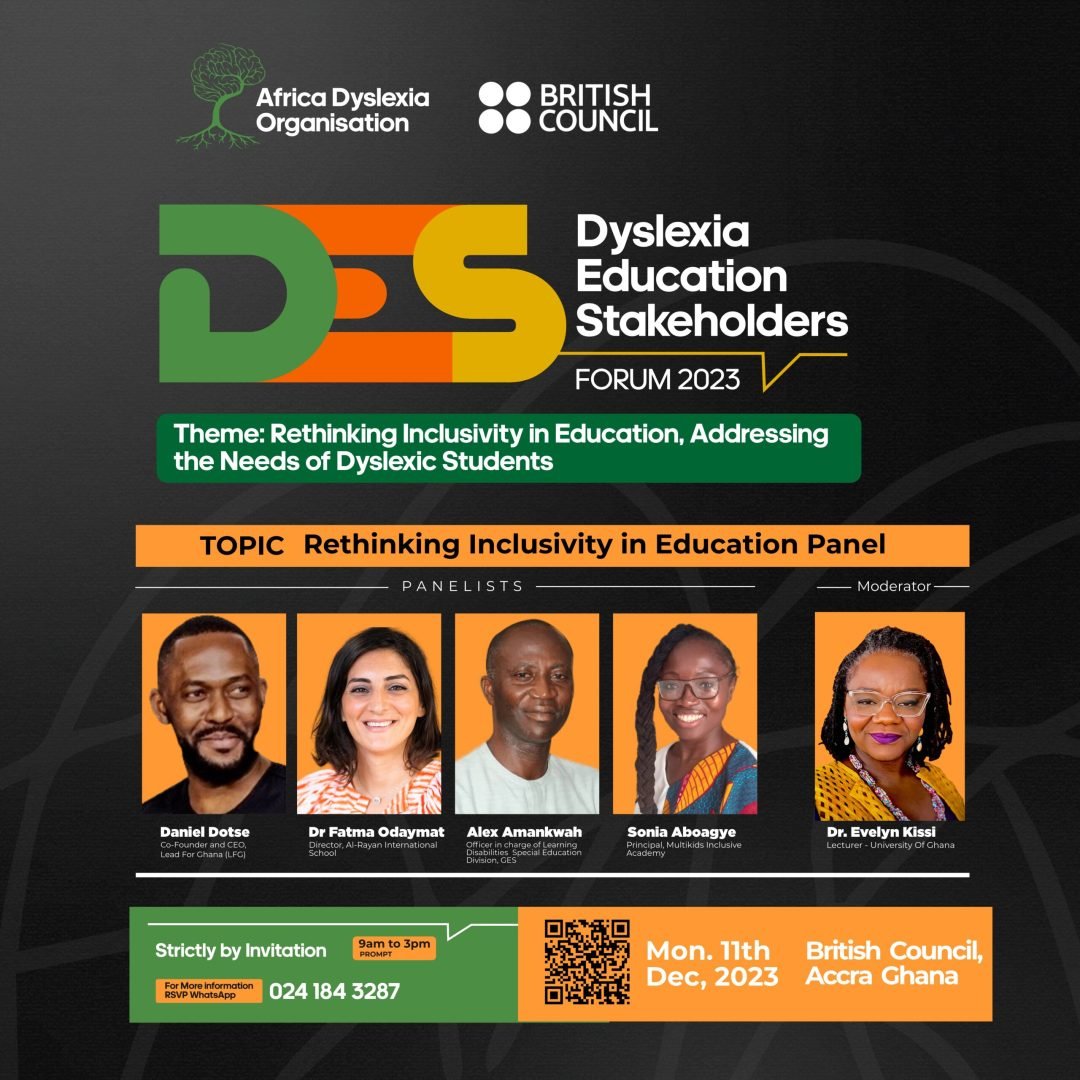
This event has already passed. Please check our homepage for upcoming events.
Dyslexia Education Stakeholders Forum 2023
Africa Dyslexia Organisation (ADO) and British Council is thrilled to announce the Dyslexia Education Stakeholders Forum 2023, an annual event dedicated to rethinking inclusivity in education and addressing the unique needs of dyslexic students and also students with related learning difficulties.
This exclusive forum, hosted by ADO in partnership with the British Council Ghana, will bring together key stakeholders and personalities from the field of education to engage in crucial discussions that will shape the future of learning in Ghana and across Africa.
Event Details:
Theme: Rethinking Inclusivity in Education: Addressing the Needs of Dyslexic Students
Date: Monday, 11th December 2023
Time: 9:00 AM – 3:00 PM (GMT)
Venue: British Council, Accra, Ghana
Why You Should Attend: The Dyslexia Education Stakeholders Forum 2023 is a unique and invitation-only event designed to foster dialogue, exchange best practices, and strategize on holistic and inclusive education policies.
As a participant, you will join a select group of attendees, including:
- Officials from the Ghana Education Ministry and the Ghana Education Service.
- Distinguished educators, school principals, and head teachers.
- Representatives from UNICEF, UNESCO, and other agencies
- Directors of NGOs specializing in education.
- Representatives from the Ministry of Health.
- Traditional leaders and religious figures.
- Inspiring Parents and passionate Teachers.
- Students
- Individuals and organizations dedicated to transforming the education landscape.
Key Event Highlights
The program features insightful panel discussions, thought-provoking keynote sessions, interactive Q&A sessions, and inspiring closing remarks.
Some key highlights include:
- The Creative Mind of Dyslexics Panel: Explore the experiences, challenges, and extraordinary strengths of dyslexic individuals. Gain a deep understanding of their unique perspectives.
- Rethinking Inclusivity in Education Panel: Dive into best practices, methodologies, and policies that foster an inclusive educational environment. Learn how inclusivity benefits all students.
- Assessment, Intervention & Parenting Panel: Understand the crucial role of parents in supporting dyslexic students and the significance of timely assessments. Discover how collective efforts can make a difference.
The Dyslexia Education Stakeholders Forum 2023 is a pivotal moment in the journey towards inclusive education in Ghana and across Africa. By participating, you become part of a transformative movement, working together to reshape the narrative around dyslexia and related learning difficulties. Let’s focus on the strengths and unique abilities of students, ensuring that no one is left behind.
Please note that this in-person attendance is strictly by invitation. Please contact us +233 24 184 3287.
To Sponsor this event, contact us at info@africadyslexia.org or Call or Whatsapp: +233 24 184 3287 or +233 243 53 55 53.



